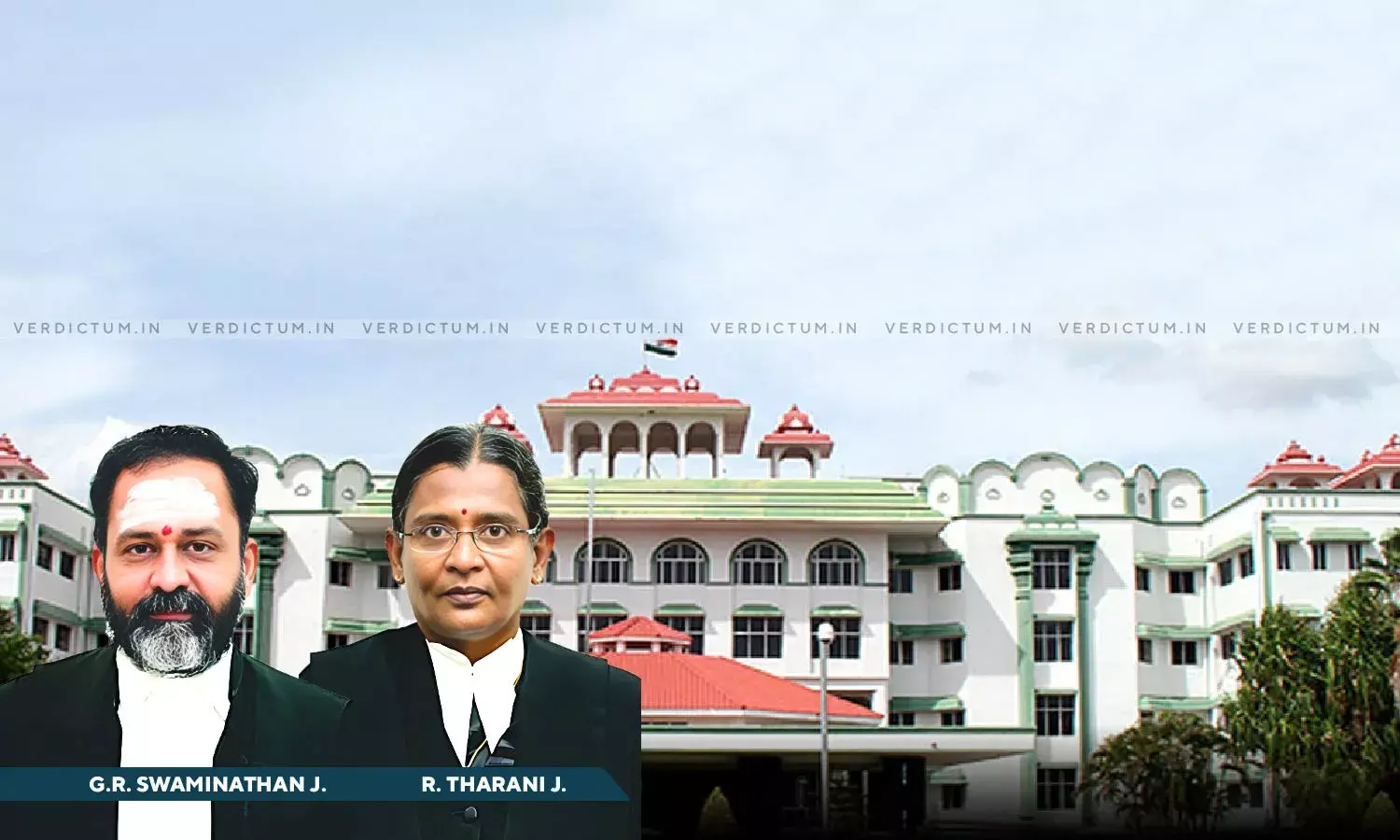Aided Minority Educational Institutions Can Fill Vacancies In Teaching Posts Only With Permission From State: Madras High Court

The Madras High Court, Madurai Bench has held that the management can fill up vacancies in teaching posts in aided minority schools only after getting prior permission from the concerned state department.
A Division Bench comprising Justice G.R. Swaminathan and Justice R. Tharani observed, “The minority schools have so far been successful in exempting themselves from the purview of the Right of Children to Free and Compulsory Education Act 2009. Their teachers need not be TET-qualified. The requirement that appointments have to be made as per communal roster to achieve social justice does not apply to minority institutions. … We, therefore, hold that the managements can fill up vacancies in teaching posts only after getting prior permission from the department.”
The Court observed in its Judgment that the managements of minority institutions are not inviting applications for filling job vacancies from the open market and that the Churches have been maintaining registers akin to the district employment exchanges and that appointments are often made from such "seniority list maintained by the respective dioceses".
The Court noted that petitions have been filed by aggrieved individuals contending that their local church has breached the seniority principle.
"Even a cursory survey would reveal that these appointees are invariably from the same religion or even denomination. Of course, Article 30 of the Constitution of India will be projected as a shield", the Division Bench observed.
The Bench also held that once the competent authority had permitted the conversion of the post of Secondary Grade teacher to that of B.T. Assistant (Tamil), it would relate back to the date of the candidate's appointment.
Special Government Pleader S. Shaji Bino appeared on behalf of the petitioners while Advocate A. Amala appeared on behalf of the respondents.
In this case, a review application was filed by the State before the Division Bench. Earlier, the respondent (appointee) filed a plea seeking approval of her appointment and consequential disbursement of grant-in-aid towards salary and other attendant benefits. St. Joseph's Girls Higher Secondary School, Sathankulam was an aided institution and following the retirement of one person, a post of Secondary Grade Teacher went vacant in the said school.
The management appointed the respondent as B.T. Assistant by submitting a proposal to the District Education Officer and gave an undertaking that no salary would be claimed until the conversion of the said post. The approval was given and the appointee was paid salary arrears with effect from December 2017 but she filed the plea contending that her appointment must be recognized with effect from June 2014. The plea was allowed by the Single Judge and questioning the same, the State filed an appeal before the Division Bench which dismissed the appeal by upholding the contentions of the counsel for the appointee. This order was sought to be reviewed by the state in the review application.
The Division Bench, after hearing the contentions of the counsel, noted, “The learned Single Judge as well as the Hon'ble Division Bench had rightly upheld the contention of the learned counsel appearing for the appointee. The order under review does not call for interference. … Bench had rightly upheld the contention of the learned counsel appearing for the appointee. The order under review does not call for interference.”
The primary argument of the counsel for the appointee was that the management of minority schools has the fundamental right under Article 30 of the Constitution of India to make appointments without getting prior permission from the department. The Division Bench took exception to this submission.
While holding that prior permission of the State is required for making appointments even though the aided institution is a minority institution, the Court noted that the State often keeps such proposals pending for an unreasonably long period.
“Her contention is that though the State is the pay master, the principle “ he who pays the piper calls the tune ” will not apply. … we are conscious that the department often keep such proposals pending for an unreasonably long period. Since the Government itself is a party to this petition, we direct the department to pass order on any proposal that may be submitted by the managements within a period of ten weeks from the date of receipt of the proposals. Speaking order should be passed by the competent authority”, directed the Court.
Accordingly, the Court disposed of the review plea.
Cause Title- The State of Tamil Nadu & Ors. v. I. Jesu Praba & Anr.


